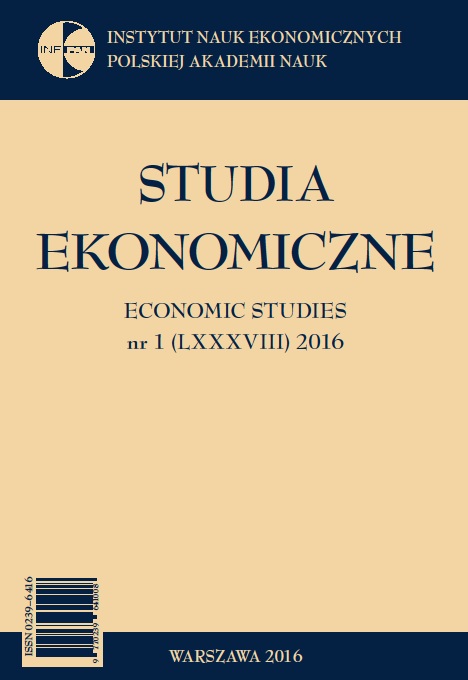Dochód, płeć i wiek a wspólne zamieszkiwanie z rodzicami. Przypadek Polski, Czech, Estonii i Węgier
Income, age, sex and cohabitation with parents. The case of Poland, Czech Republic, Estonia and Hungary
Author(s): Rafał Miśta, Leszek MorawskiSubject(s): Economy, Micro-Economics, Socio-Economic Research
Published by: Instytut Nauk Ekonomicznych Polskiej Akademii Nauk
Keywords: living arrangements ; young adults ; EU-SILC ; logistic regression
Summary/Abstract: The paper uses the EU Survey of Income and Living Conditions (EU-SILC) data for the years 2005-2012 to analyze the relationship between household income, sex and age of a child on the one hand and probability of moving out of parents’ homes on the other. The study was conducted for Poland, the Czech Republic, Hungary and Estonia. The identifi ed relationships do not differ from those previously observed for Western European countries – women leave parents’ households earlier than men, and the impact of income varies among countries. The moment when children move out is linked to the higher education system. Household income is more important for those aged above 24 than for the younger ones. The pattern of moving out in Estonia is closer to the one observed in Scandinavia than for Central European countries despite similarities in the level of economic development and socio-economic history.
Journal: Studia Ekonomiczne
- Issue Year: 2016
- Issue No: 2
- Page Range: 286-311
- Page Count: 26
- Language: Polish

